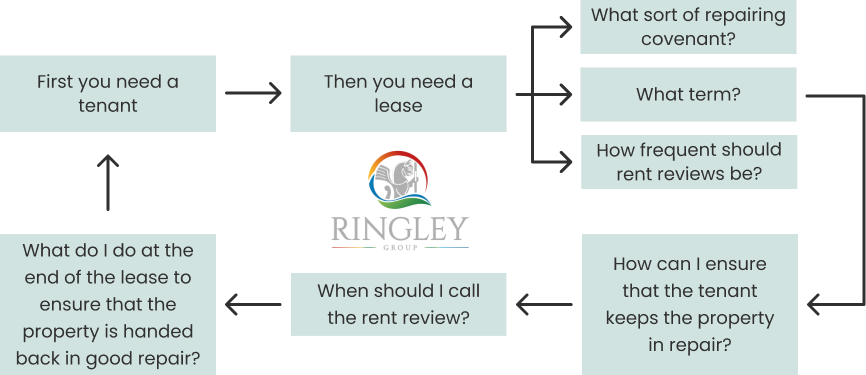Negotiations are founded in market evidence as are rent review submissions for arbitration or expert determination
Our Rent Review Valuers support landlords and tenants alike covering most property classes: retail, office, industrial, health our team provide valuation services.
Commercial leases: Rent Reviews & end of lease provisions
Commercial tenants need to be aware that when a commercial lease comes to an end there is only an automatic right to stay in the property if your landlord has not served a Section 25 Notice on you and if your tenancy is inside the 1954 Act. If your lease is protected then when it ends you will have the right to stay in the property and hold over on the same terms until new terms are agreed or either party applies to Court and the Court imposes a new lease. A landlord may loose the right to call a rent review if he/she does not call it when and how the lease says, so, as a tenant it may be in your interests to keep quiet.

Does it
- require the landlord to serve formal notice to call the rent review
- say if the landlord fails to call the rent review they loose the opportunity to review the rent until the next review
- let the landlord review the rent when they remember to call the review but not backdate any increased rent
- let the landlord review the rent when they remember to call the review AND backdate any increased rent
- say if the rent is not agreed by a certain date that the landlord must appoint an arbitrator or independent expert to set the rent

What to do if you receive a Section 25 Notice to end your lease
Act fast:
if you receive a Section 25 Notice and you want to stay in the property, you must act ast and serve a Section 26 Notice requesting a new lease.
Beware:
if you fail to observe certain time limits you may loose the right to a new lease. Whilst for tenants protected by the 1954 Act the landlord’s grounds to seek possession are limited you may well finding yourself having to prove that the landlord’s grounds are unreasonable.
What type of lease is ours? One a lease that:
- automatically ends your occupational rights as tenant on the last day of the lease
- do you, the tenant automatic security of tenure and not need to serve notice to request a new lease
- requires you, the tenant to serve notice to request a new lease, are you aware of the timescales
- gives you, the tenant security of tenure whether or not you serve notice to request a new lease
- requires you, the tenant to serve notice of your proposed terms to be able to backdate any new rent to when the lease ended
- says if terms are not agreed by a certain date that you must apply to the Court for the Court to set the new terms
Landlord & Tenant: what you need to know

Commercial leases & Terminal Dilapidations Schedules
The wording of the repairing covenants under the lesee informs how the Building Surveyor interprets the repairing liability for defects and dilapidarions found.

Residential Leases & Tenancies
Residential properties can be let on licences, tenancies, or leases. What is right depends on whether the tenant is a company or individuals, who will be in occupation, and whether exclusive possession is intended.

Role of an Arbitrator & Independent experts
The lease usually sets out whether an arbitrator or expert should settle an unagreed rent review. Let's explore the pros and cons of each.
Find out more right now
Talk to one of our rent reviews surveyors today




















